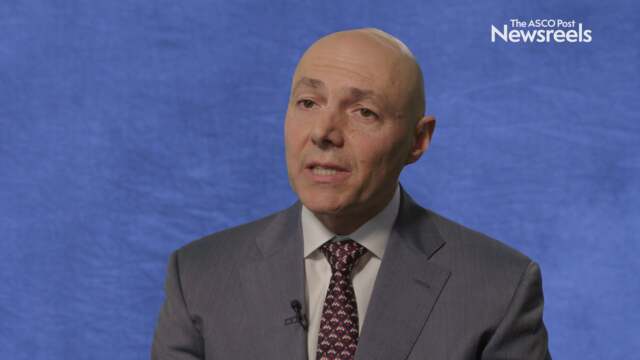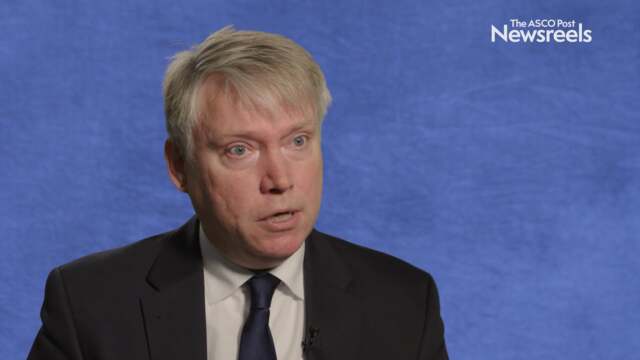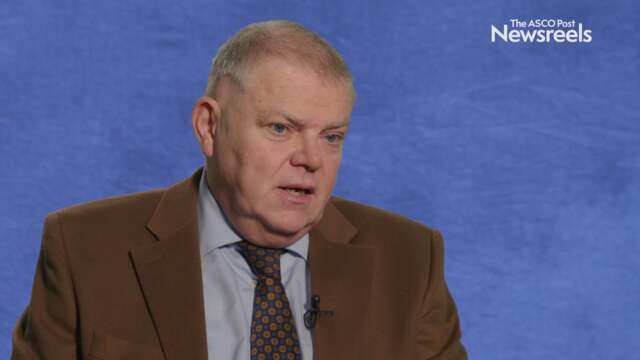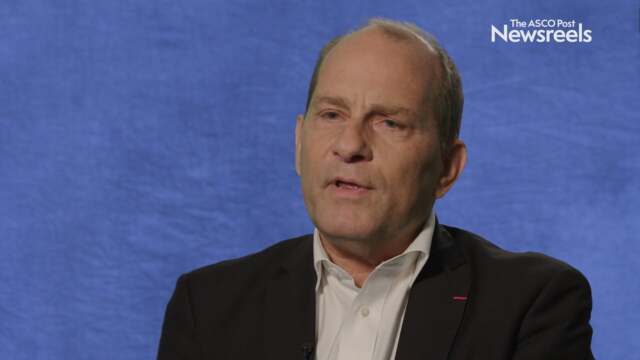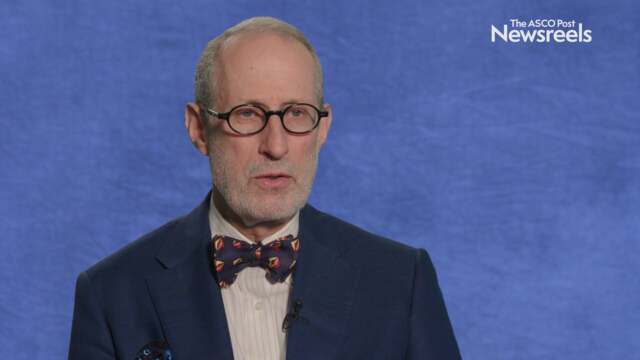Sibylle Loibl, MD, PhD, on Metastatic Breast Cancer: Research Highlights
ESMO 2018 Congress
Sibylle Lobil, MD, PhD, of the German Breast Group, discusses findings in metastatic breast cancer from the IMpassion130 trial in triple-negative disease and from the PALOMA3 and SOLAR-1 trials in hormone receptor–positive, HER2-negative disease (Abstracts LBA1_PR, LBA2_PR, LBA3_PR).
Ezra E.W. Cohen, MD, of the University of California, San Diego, discusses the effectiveness of anti–PD-1 therapy in patients with recurrent head and neck cancer and the studies that might help predict who will benefit, how to combine agents, and ways to reduce long-term toxicity.
Martin Reck, MD, PhD, of the LungenClinic, discusses recent updates on biomarkers beyond PD-L1 expression; mechanisms and management of resistance; as well as combinations and novel approaches in lung cancer.
Johan F. Vansteenkiste, MD, PhD, of Catholic University Leuven, summarizes a session he co-chaired that included discussion of translating advances in stage IV disease to nonmetastatic lung cancer, TKI approaches in early-stage disease, and integrating immunotherapy and TKIs in stage III disease management.
Alexander M.M. Eggermont, MD, PhD, of Gustave Roussy, discusses findings from recent adjuvant trials in high-risk melanoma, and what the NCCN Guidelines recommend in light of such data as results on dabrafenib plus trametinib vs anti–PD-1 treatments (nivolumab or pembrolizumab) and the new standard for wild-type disease.
Jeffrey S. Weber, MD, PhD, of the NYU Langone Perlmutter Cancer Center, discusses how long people with melanoma should be treated with PD-1 blockade and the data on remission rates.
